|
|
         |
|
|
 |
 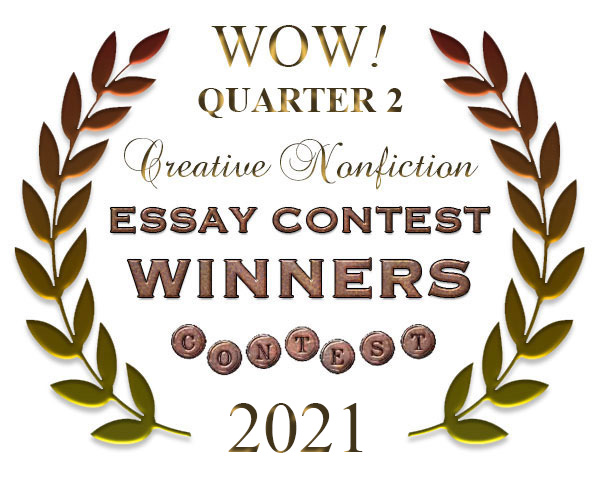
|
 |
| |
|
|
| |
|

We had an open topic this season. Our only guidelines were that submissions be nonfiction with a minimum of 200 words, and a maximum of 1,000 words.
|
| |
|
THANK YOU TO OUR CONTEST SPONSOR:
It is the sincere desire of our sponsor that each writer will keep her focus and never give up. Mari L. McCarthy has kindly donated a prize to each winning contestant. All of the items in her shop are inspiring and can help you reach your writing goals. Write on!
|
| |
|
Note to Contestants:
We want to thank each and every one of you for sharing your wonderful essays with our judges this season. We know it takes a lot to hit the send button! While we’d love to give every contestant a prize, just for your writing efforts, that wouldn’t be much of a competition. One of the hardest things we do after a contest ends is to confirm that someone didn’t place in the winners’ circle. But, believe it when we say that every one of you is a true winner for participating.
To recap our current process, we have a roundtable of 8+ judges who blindly score equally formatted submissions based on: Subject, Content, Technical, and Overall Impression (Style). If a contestant scores well on the first round, she receives an e-mail notification that she passed the initial judging phase. The second round judging averages out scores and narrows down the top 20 entries. From this point, our guest judge helps to determine the First, Second, and Third Place Winners, followed by the Runners Up.
As with any contest, judging so many talented writers is not a simple process. With blind judging, all contestants start from the same point, no matter the skill level, experience, or writing credentials. It’s the writer’s essay and voice that shines through, along with the originality, powerful and clear writing, and the writer’s heart.
We hope that you continue to enter so we can watch you grow as writers and essayists, because each season is a rebirth of opportunity!
 Now on to the winners!
Drum roll please....

1st Place: Mary Jumbelic
Syracuse, New York
Congratulations, Mary!
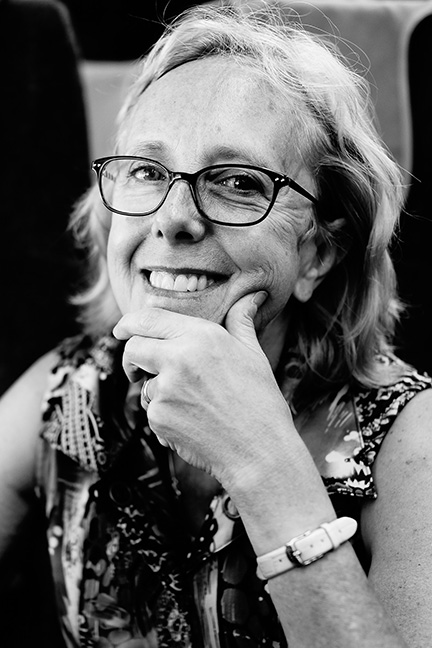
Mary’s Bio:
Mary Jumbelic is an author from Central New York, and the former chief medical examiner of Onondaga County. Performing thousands of autopsies in her career, she elaborates a strong voice for the deceased. She explores through creative non-fiction the imprint the dead have made on her humanity.
She has published with Rutgers University Press, Tortoise and Finch, Foliate Oak Literary Magazine, Vine Leaves Press, GFT Press, and Jelly Bucket. In 2014, her piece was selected for the top ten in the AARP/Huffington Post Memoir Writing Contest. In 2021, another was chosen in the top ten for the Tucson Literary Festival.
She is co-teaching an on-line course on memoir for the Downtown Writer’s Center of Syracuse, Spring 2021 and is Assistant Editor for Stone Canoe, Volume 15.
Stories can be read on her blog, Final Words, at www.maryjumbelic.com.
Printable View
Watching Her
By Mary Jumbelic
We headed to Cape Cod; the minivan filled with inflatables, towels, a packed cooler, and three excited boys. My husband was driving. We had been fielding the kids’ repeated question of “Are we there yet?” for the past half-hour. Our car slowed as we approached the bottleneck at the Sagamore Bridge.
The FM dial stayed tuned to 102, a classic rock station. Sting’s familiar melody played with the pulsing of alternate beats on the middle tom-tom and snare. The upright bass throbbed a double count. “Every breath you take,” a huge hit for The Police, won Best Song at the 1983 Grammys. Even 20 years later, the radio played it a lot.
Words sung from a shattered heart—breath, move, bond, step, vow, smile, claim. A strong desire of possession felt in the aftermath of separation. He wanted to follow his ex wherever she went. The lyrics undid me, as happened every time I heard them.
In the front passenger seat, I turned towards the side window and closed my eyes, unable to avoid the images. They ran like a filmstrip; frames crisp and in vivid color.
A different hot summer day. In the humid morgue, the protective gear felt suffocating. I wore an N-95 mask, face shield, plastic gown, booties, and a double layer of gloves. As the Chief Medical Examiner, I had a busy schedule with three cases that morning. All of them required full autopsy examinations. The first up was a woman I had met the night before, the night she was murdered.
“Are you ready, Dr. J?” my assistant asked as he unzipped the body bag.
I paused, contemplating the question and whether I would ever be ready for extreme brutality.
“Let’s begin,” I said as we took our places.
I thought back to the crime scene. Part of the responsibility of the medical examiner was to investigate the circumstances. The location of death, the surrounding environment, and witness statements provided context to whatever the autopsy would ultimately reveal. I observed this woman’s final moments charted in blood and chaos.
The body had not yet been moved; she lay where she took her final breath. Dried and liquid red gore outlined the dead woman as she sprawled on the floor. The original white of her uniform dyed crimson. Haphazard scarlet footprints patterned the ground. The six-inch long murder weapon positioned across the room like a horror movie prop.
Her ex-husband had been stalking her for weeks. On the day of her death, he phoned and threatened her. She had an order of protection, but the cops couldn’t help her. They told her that since the man wasn’t physically near her, they were powerless to react to verbal intimidation.
Her former spouse watched from the street, then went into the nursing home where she worked. He pushed past the receptionist, assistants, and patients. In a communal room, he grabbed her from behind. She was a big woman, but no match for his more muscular frame and adrenalin-fueled passion. Screaming, kicking, punching, she fought to free herself. Co-workers threw furniture at him as he repeatedly stabbed her with a butcher knife. One chair broke as it hit his back. An attendant tried to grasp the man’s pant legs. The attacker swung the blade in a wide arc preventing anyone from drawing near. A clerk dialed 9-1-1. The air filled with screams and sobs.
In the autopsy suite, the woman lay on the gurney, still bloody from the knife attack. Stabs and slices concentrated on her head, neck, and upper chest surrounded by cerise smears. The loss of blood paled her naturally brown skin. She wore a look of surprise. Even though I knew this was a postmortem change, it haunted me. I closed her eyelids.
I counted 103 sharp wounds on her body. Superficial cuts lined her hands and forearms where she tried to cover her head. The yellow underpinning of the fatty tissue of her scalp glistened from slashes down to the skull. Black hair matted in the wounds. Dozens of bruises colored her arms and legs from the struggle with her killer.
A trail of open lesions began on her face in front of the right ear and extended to the shoulder. The murderer thrust the blade through skin in a staccato fashion. Individual punctures might have been survivable. Except for one, right below the middle of the collarbone; the underlying artery severed. If someone had been able to get close enough to apply pressure, maybe she wouldn’t have lost a fatal amount of blood. A futile thought.
In the morgue, the radio played in the background while the technician and I worked. Sometimes music eased the tension.
“And now, an oldie but a goodie, and one of the top 100 songs of the twentieth century,” said the DJ. In the midst of my examination, I listened to Sting’s signature piece.
And now, years later, in a traffic jam on the eastern shore of Massachusetts, it sounded again sending echoes of the horror of that day.
The boys grew quiet. My husband reached over and took my hand. His right thumb rubbed my left one. He did not know the specifics of why I was crying; it was enough to know that I was. Then dropping my hand, he turned the radio off. A moment of silence for a victim from long ago.
Her ex-lover was watching her, and then I was.
I realize that I always will be. Watching her.
***
What Mary Won:

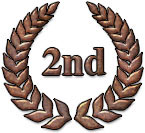
2nd Place: Natalie Beisner
Los Angeles, California
Congratulations, Natalie!
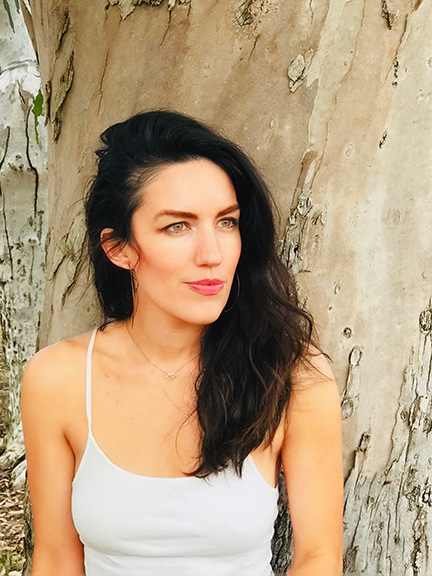
Natalie’s Bio:
Natalie Beisner is a Los Angeles-based storyteller and writer. Her personal essays have been featured in The Selkie, The Dead Magpie, antonym lit, ArtAscent, VISIO, Weird Women Co. Her writing has been previously awarded by Kaleidoscope: A Reflection on Women’s Journeys, Gulf Stream Lit, as well as WOW! Women on Writing. Natalie is a previous StorySLAM winner with The Moth, and now she helps to coordinate monthly storytelling shows, in an effort to help foster empathy. She hopes to help bridge the current political divide by encouraging people to share their stories and to listen to those of others. Natalie holds a BFA in Acting from Cal State Fullerton. You can find out more about how to get involved in her storytelling shows by following her on IG @nataliejeanbeisner. More writing available at her blog www.thisisnotalie.com.
Printable View
Run for Your Life
By Natalie Beisner
She’s started running nights. They say running can be good for depression. She’s not ready to get back on antidepressants, and anyway, she’s uninsured again. So nights, she runs—
past the organic day spa, where, tonight, there’s a body on the concrete. It’s a man sleeping, seemingly peacefully—a typical sight on any given block in this part of the city. Still, she can’t quite shake the guilt, slamming her sneakers on the sidewalk, right past his makeshift bed, back towards home, which admittedly, doesn’t feel too much like home (even after two years, her roommate is still basically a stranger off Craigslist), but at least it has four walls and a little twin bed, and frankly, getting back to it is the best part of any run. She doesn’t slow down—
past six different taco trucks—one on every street corner. Like homeless people that way—but in this city, one is revered far more than the other. People crowd outside the trucks, masked, pretending to socially-distance—every man, woman, and child with their own particular version of what six feet looks like. Unless it involves the homeless. Then six feet looks an awful lot like just about as far away as they can get, which—in this city—isn’t very far. She keeps running—
and up ahead a pair of legs dangle over the edge of a trash can. They wave to and fro, which means they are—blessedly—attached to a living person, the top half of whom is concealed in the trash, presumably hunting for recyclables or other goods. A Hefty bag full of collected treasures bulges out of a red shopping cart parked haphazardly a few feet away. Across the street, the too-bright lights of Target, where dozens of people are filling identical red carts—not with empty cans and bottles, no, but with other empty things, things they don’t need. It’s the same store where she bought the running pants she’s wearing now—tight bright fuchsia, which she doesn’t normally go for, but they were on clearance, more than half-off.
The legs have righted themselves, having retrieved their upper half from the trash, and now before her stands a man, scruffy, staring. He jerks forward, yanking the cart away, as if perhaps she’d been thinking of absconding with it, sprinting down the sidewalk in her spandex, to the nearest recycling center, pilfering the profit into her too-pink pockets. She feels an irrational yearning to explain herself to this man, why she’s here on this sidewalk next to this trash can and his cart and his bag of recyclables. The idiotic urge to yell: “I’m not a runner! This isn’t something I do. I’m only doing it because most days I feel like dying, and it’s cheaper than a gym (when they’re actually open) or therapy—although...I do go to therapy. But it’s very affordable, and anyway...I don’t know if it’s helping...”
But she understands this rummager, clutching his cart full of empty things he probably very much needs, doesn’t want to chat about how she needs to go running and to therapy in order to stake her claim among the living. He’s busy staking his own—and he has to scrounge in garbage for spare change to do it. From where he’s standing, she probably looks an awful lot like she’s doing just fine. And maybe she is. Sure, it doesn’t feel like it—never feels like it—but it’s all relative, right? She looks back to make sure he’s not following her, and even as she does, she is embarrassed. Onward—
to a beat-up old tent on the sidewalk ahead. So much crap inside, it cannot be contained, crowding out onto the concrete. The only thing she can discern from the pile, as she hugs the sidewalk to run past, is a Styrofoam cup. Contents: unknown. Then suddenly, it’s her parents in the tent. It’s her parents who flash in her mind and how they’re currently facing potential homelessness for the second time this year. How they were evicted last year from their home of ten years, due to unpaid rent. How the place they’re living in now is too expensive, but it’s the only place that would accept their credit. How there’s a seven-year waitlist for Section 8 Housing in their area, and they don’t seem to qualify for government assistance, having somehow slipped through every crack possible. Then again, it’s nothing special to slip through cracks wide enough to swallow decent, hard-working people whole. And that was all pre-pandemic.
Her parents gave her and her siblings a great home growing up, despite the fact that her family was “asked to leave” several homes, and once they ended up—all five of them—moving in with her grandparents in their two-bedroom condo. They’ve always struggled with money. Things have only gotten worse. Her dad had an emergency triple bypass five years ago and hasn’t been the same since, but he won’t admit it. Or worse: doesn’t realize it. Her mom spends hours applying for jobs online. Her mom excelled at the hardest job in the world—but it means zilch on a resume.
She gets home to her room that doesn’t feel like home, but her mind is still running. Past the sleeping men and the crowded taco trucks, past the people sifting garbage and the shoppers who have learned to turn a blind eye. She doesn’t know which of these people she is. She doesn’t know which her parents will be. She sees her mom and dad on every street corner, holding up signs, in a beat-up tent, under a freeway, with a Styrofoam cup—and hopefully something nice inside. She doesn’t know whether to stop and give them a dollar or give them everything or sit and talk with them or smile at them or ignore them, act like it can’t happen to her and her family, stare straight ahead, just keep running.
***
What Natalie Won:


3rd Place: Kelly Eden
West Coast, New Zealand
Congratulations, Kelly!
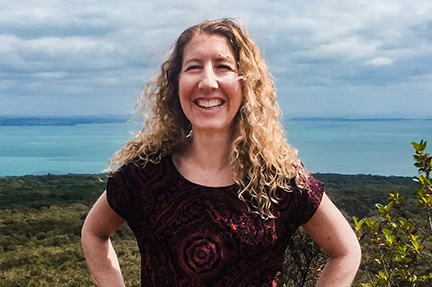
Kelly’s Bio:
Kelly Eden lives with her family of six on the edge of a rainforest in New Zealand. She has been a writer for print and online magazines for over 12 years and now runs a Creative Nonfiction Academy and Personal Essay Course to help other writers tell their stories.
Kelly was a school teacher before entering the writing world, completing her Bachelors in Education and Post Graduate Diploma in Health Sciences, which eventually led her into writing for parenting magazines. She also focused on short fiction early in her career, winning several local awards including a scholarship with the New Zealand Society of Authors to be mentored by international author, Shirley Corlett, for a year.
Kelly then discovered her true passion in creative nonfiction and her personal essays and articles have been published in Mamamia Australia, Scary Mommy, Highly Sensitive Refuge and more. She is also the senior editor of Inspired Writer on Medium, a publication highlighting creative nonfiction and writing tips.
When she’s not writing, Kelly spends her time homeschooling her oldest two daughters, walking in the bush, renovating her house, or getting involved in something creative in her small community.
Printable View
Shaping the Narrative
By Kelly Eden
Other people’s lives are spread out in black and white across my bed, ready for editing. Pen in hand, I select the closest story. My oldest daughter leans in to read over my shoulder. At fourteen, she’s developing into a mini version of me—same shoulders; same pear-shaped curves; her hair beginning to curl, like mine did at her age. So similar to me and also my opposite in personality: her stage-loving, extroversion doesn’t come from my genes. We share this, though: a love of stories.
*
In my job, I often find myself editing other people’s lives. It feels like a privilege. People offer up their stories and trust me with their secrets. They reveal themselves in their rawest form: before they cut away parts they’re too scared to share, before they edit themselves or trim away scenes. They let me share their exhaustion, their joy, their struggle to be the mother, father, daughter, friend, lover they want to be. Whole or broken, I carry their stories in my mind like precious artifacts, especially the mothers’ ones.
*
One mother, a writer not much younger than me, gives birth to her second child. She holds her stillborn baby boy, wrapped in hospital blankets and kisses his cold cheek. Through her eyes, I watch with hope as her stomach grows again for the third time. She gives birth—afraid, praying. We gaze together at the tiny baby in her arms, finally arrived, pink and full of life.
*
“Can I read that one?” My daughter points to a page covered in notes, red arrows, editing marks she has learnt and understands. Today I decided to edit on paper rather than online like I usually do. My co-editor has sent me the first twenty stories for a contest we’re running and I feel the need to hold them. There’s something about the sensation of paper in my hands as I read that makes it easier to enter the story world. It also means my homeschooled daughter can be involved.
“Sure.” I hand her a moving story of a mother who lost someone they loved. My daughter is old enough to appreciate loss. She’s experienced her own losses. Ones I wish I could’ve sheltered her from. In a single year, we lived through my divorce, the loss of a loved one to drug addiction, and the death of two friends—all piled one after the other. I wish I could take a red pen to those scenes. Cut them out with long diagonal lines: “Remove this whole section.” But you can’t rewrite life. So I carry her story and mine; a braided essay of threads entwined. Woven together as mothers’ and daughters’ stories are.
I’ve been a writer and editor for over a decade now, helping others shape their stories. Both my girls love to read, but my oldest is fascinated by my work. She’s a published writer herself and I’ve learnt not to underestimate her editing skills. “Is this a good one?” she asks. “I like the first sentence.”
“It’s really well written,” I say, pausing in my work to watch her. My talkative teen is silent; her whole body quiet, focused on the page in her hands. Her face relaxes and I recognize the feeling—it’s the same one I experience the moment a powerful story touches your soul. “Oh! It is,” she whispers.
*
I hesitate at the door with a writer in her 60s: a sister, a mother, a widow. She’s afraid of the news on the other side. My heart beats with hers as she wonders who she’s lost this time.
*
Parents wish we could shelter our kids from some stories, edit the parts of their lives where they were hurt, where life was hard. There are scenes from my own life I’d love to remove too. I’d erase the days I sat with my knees curled to my chest and wept over a man I knew wasn’t good for me. The years I wasted because I was too anxious to live fully; too perfectionist to take any action in case it was the wrong one—I’d cut those with one hit of the delete key.
*
A young divorcee pours her fears onto the page. We sit side-by-side on the couch, my hand over hers, covering the empty space where her wedding ring used to be. I feel her relief; her marriage was toxic. I nod with her as she writes out her doubts, fourth paragraph in. Could it have been different? Could she have done something, said something, been someone different? And what about the kids? I don’t have an answer. I wonder the same thing.
*
Editing other people’s real stories, I realize all of us come with twisted plot lines. We can plan a romantic-comedy-life all we like and still end up in a tragedy. We don’t always get to choose the events but what we do with them matters. Our narratives shape us and we shape them in the retelling. The raw material can be crafted into precious gems. We get to give our stories meaning and make them something more: Something we want to carry with us.
The saddest stories are made powerful. The painful parts of our lives are made beautiful. My divorce, our friends’ deaths, and the drug-addicted family member wasn’t a year of meaningless tragedy. Through it my daughters and I found joy and closeness in small moments: crepes with strawberries on a Sunday, a warm fireplace to read The Magician’s Nephew in front of, endless episodes of Full House while we snuggled in bed. We created a new peaceful home. A new chapter in our story.
*
“What’s this one about?” my daughter asks, pointing to another story on the pile between us. “That’s another sad story,” I say, “but it’s beautifully written.”
She grabs it and snuggles in beside me. “I like those ones.”
I read over my daughter’s shoulder. “I like those ones too,” I say.
***
What Kelly Won:
 RUNNERS UP:
Congratulations to the runners-up! It was very close, and these essays are excellent in every way.
Click on the titles to read:
Widow’s Walk by Melissa Knox, Essen, Germany
A Fish Out of Water by Barbara Olsen, Colorado
Le Pen de Amazon by Helen K. Hedrick, Denver, Colorado
The Glass Sliver by Robyn Fisher, Olympia, Washington and Kihei, Maui
Friends by Natalie Beisner, Los Angeles, California
Winter Rainbow by Pattie Palmer-Baker, Portland, Oregon Death by Compost Bin by Evelyn (Evie) Preston, Palo Alto, California

HONORABLE MENTIONS:
Congratulations to our Essay Contest Honorable Mentions! Your essays stood out and are excellent in every way.
Running in Violet Circles by Carol Ovenburg, Ashland, Oregon
Cooler Trash and the Zen of Lightening Your Load by Julia Abelsohn, Edmonton, Alberta, Canada
The Cost of Conversion by Melissa Knox, Essen, Germany
I Am Going to Hate the Name Social Scientists Come Up With for the Next Generation by Mazzer D’Orazio, Fairfax, Virginia
Eager Anticipation of the Demise of a Spouse by Lisa Alberico, Granville, Ohio
The Outlet by Margaret Kowalski, Delmar, New York
Right on Time by Bethany Rydmark, Portland, Oregon
Good Girl by Lina Lau, Toronto, Ontario, Canada
The List-Maker by Leslie J. Cox, Glendale, Arizona
My Dead Mother’s Breasts by Andreea Ceplinschi, North Truro, Massachusetts
What the Honorable Mentions Won:
|
| |
|
Thanks to our Judges:
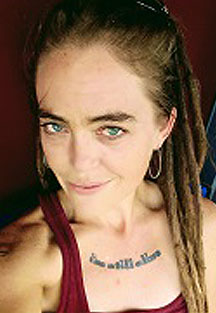
Chelsey Clammer
Chelsey Clammer Chelsey Clammer is the award-winning author of Circadian (Red Hen Press, 2017) and BodyHome (Hopewell Publications, 2015). A Pushcart Prize-nominated essayist, she has been published in Salon, Brevity, McSweeney’s Internet Tendency, The Normal School, Hobart, The Rumpus, Essay Daily, and Black Warrior Review, among many others. Her third collection of essays, Human Heartbeat Detected, is forthcoming from Red Hen Press. Chelsey received her MFA in Creative Writing from Rainier Writing Workshop. You can read more of her writing at: www.chelseyclammer.com.
-----
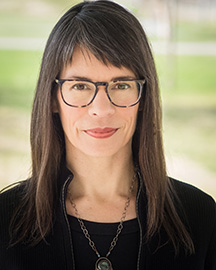 Naomi Anna Kimbell Naomi Anna Kimbell earned her MFA in creative writing from the University of Montana, and her work has appeared in The Rumpus, The Nervous Breakdown, Crazyhorse, Black Warrior Review, Calyx, The Sonder Review, and other literary journals and anthologies. To learn more about Naomi, please visit her website.
-----
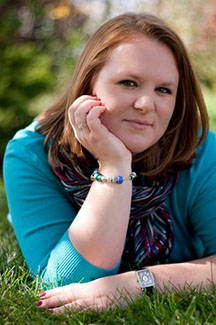
Melissa Grunow
Melissa Grunow is the author of I Don’t Belong Here (New Meridian Arts Press, September 2018) and Realizing River City: A Memoir (Tumbleweed Books, 2016), which won Second Place-Nonfiction in the 2016 Independent Author Network Book of the Year Awards and the Silver Medal in Nonfiction-Memoir from Readers’ Favorite International Book Contest. Her work has appeared in Creative Nonfiction, River Teeth, The Nervous Breakdown, Two Hawks Quarterly, New Plains Review, and Blue Lyra Review, among many others. Her essays have been nominated for a Pushcart Prize and Best of the Net and listed in the Best American Essays 2016, 2018, and 2019 notables. She has an MFA in creative nonfiction with distinction from National University. Visit her website at www.melissagrunow.com or follow her on Twitter @melgrunow.
-----
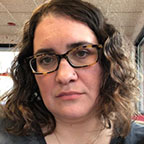
Sarah Broussard Weaver
Sarah Broussard Weaver received her MFA from the Rainier Writing Workshop MFA program at PLU. Her work has appeared in Full Grown People, The Nervous Breakdown, The Bitter Southerner, Brevity, Crack the Spine, and Hippocampus, among others. She lives in the hills of Portland, Oregon.
-----
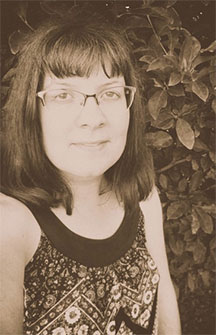
Melanie Faith
Melanie Faith is a poet, fictionist, photographer, auntie, and professor. Her craft book about how to write flash fiction and nonfiction, entitled In a Flash! was published in April 2018, and a craft book for poets, Poetry Power, was published in late October 2018 (also by Vine Leaves Press). Her historical poetry collection, This Passing Fever, set in the 1918 influenza epidemic, was published by Future Cycle press in early September 2017. Her Jane-Austen style Regency novella was also published in September 2017 by Uncial Press and RONE-award nominated. Her writing has been nominated for three Pushcart Prizes. Her short stories were recently published in Red Coyote and SunLit Fiction. Her poetry most-recently appeared in Prometheus Dreaming (May 2019), Up North Lit, Meniscus, and in Fredericksburg Literary and Art Review. Her photography recently appeared in Barren Magazine, Fourth & Sycamore, Harbor Review, Sum Journal, and And So Yeah. In 2018, two of her craft books were published, and her next book, Photography for Writers, was recently published by Vine Leaves Press. Learn more about her latest projects at: www.melaniedfaith.com/blog/.
-----
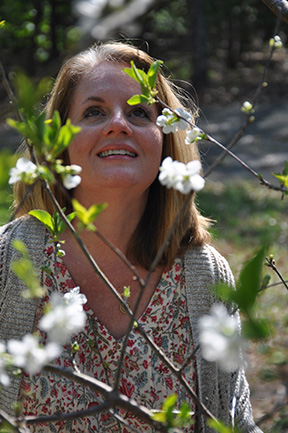
Ashley Memory
Ashley Memory lives in rural Randolph County, North Carolina, with her sculptor husband, Johnpaul Harris. When she’s not musing on a new metaphor, she’s trying to learn to drive a skid-steer loader and move earth. Her writing has appeared in many journals, magazines and anthologies, most recently in The Sun, The Phoenix (Issue 61), The Rumpus, County Lines, O.Henry, and Rooted in Rights. Her lyric essay, “A Tale of Two Tumbles,” won first prize in the 2020 Carolina Woman Writing Contest, and her first poetry collection, Waiting for the Wood Thrush, was published by Finishing Line Press in November 2019. She writes a column for the WOW! Women on Writing markets newsletter, and she’s currently at work on a memoir of her life in the Uwharries. Her writing has been nominated for a Pushcart Prize, and she’s twice won the Doris Betts Prize sponsored by the N.C. Writers' Network. Her first novel, Naked and Hungry, was named a finalist in the 2009 James Jones First Novel Fellowship competition sponsored by Wilkes University and was published in 2011 by Ingalls Publishing Group. For a forkful of the literary life, follow her blog, Cherries and Chekhov.
-----
Thanks to WOW Staff:
As always, thank you to the WOW! staff for your careful deliberation and attention to detail. Special thanks to Margo L. Dill and Angela Miyuki Mackintosh for helping out with this contest.
-----
|
| |
|
IN CLOSING:
This brings the Q2 2021 essay contest officially to a close! Although we’re not able to send a special prize to every contestant, we will always give our heartfelt thanks for your participation and contribution, and for your part in making WOW! all that it can be. Each one of you has found the courage to enter, and that is a remarkable accomplishment in itself. Best of luck, and write on!
Check out the latest Contests:
https://www.wow-womenonwriting.com/contest.php
|
|
|
|
|